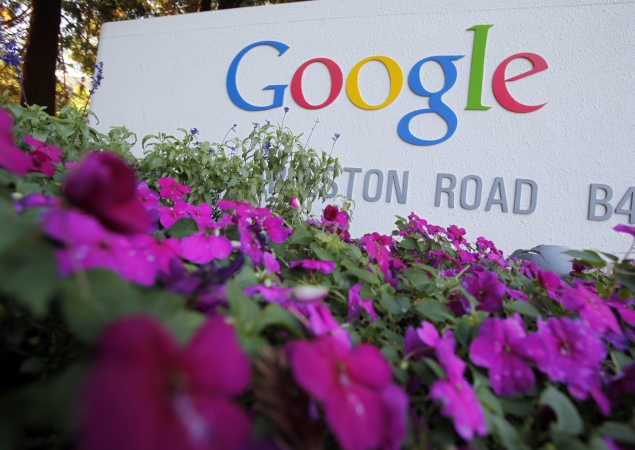- Home
- Internet
- Internet News
- Google offers to modify how it displays search results in Europe
Google offers to modify how it displays search results in Europe

Google's search engine, which is the world's most influential gateway to online information and commerce, enjoys a near-monopoly in Europe. The EU Commission, which acts as the 27-nation bloc's antitrust authority, has since 2010 been investigating whether the company is unfairly stifling competition. It pointed out several areas of concern that Google is now trying to address through the proposed concessions.
Google has offered to more clearly label search results stemming from its own services such as YouTube, Google Maps or its shopping search function, allowing users to distinguish between natural search results and others promoted by Google. It also agreed to display some search results from its competitors and links to their services, the EU Commission said.
The Commission has often taken a harder line with U.S. tech companies than its American counterparts, the Federal Trade Commission and the Justice Department. Google, which is based in Mountain View, California, was able to settle a similar antitrust complaint on its search business with the FTC in January without making any major concessions on how it runs its search engine.
(Also see: All you need to know about Google's antitrust settlement)
The Commission is now proposing a market test of the concessions for a month as a test run. That would give competitors the chance to say whether they deem them sufficient.
Once the Commission accepts them - revised or not - they become legally binding for the company for the next five years. Google has worked closely with the Commission on the concessions' design until formally submitting them earlier this month.
"The objective of this process is to try to see if we can achieve a settled outcome in this antitrust investigation," said Commission spokesman Antoine Colombani.
The Commission said Google will "clearly separate promoted links from other web search results by clear graphical features" and "display links to three rival specialized search services close to its own services, in a place that is clearly visible to users."
Google will also give all websites the option to keep their content from being used in Google's specialized search services, "while ensuring that any opt-out does not unduly affect the ranking of those web sites in Google's general web search results," it said.
In addition, the proposed remedies will give newspaper publishers greater control over what appears in Google's news aggregator Google News. Google is also giving marketers greater ability to buy ads on rival networks.
The Commission's investigation was initially triggered by complaints from Google's rivals such as Microsoft Corp.
Google's web search service has a market share of over 90 percent in the EU, a bloc of over 500 million people that makes up the world's largest economy.
Get your daily dose of tech news, reviews, and insights, in under 80 characters on Gadgets 360 Turbo. Connect with fellow tech lovers on our Forum. Follow us on X, Facebook, WhatsApp, Threads and Google News for instant updates. Catch all the action on our YouTube channel.
Related Stories
- Samsung Galaxy Unpacked 2026
- iPhone 17 Pro Max
- ChatGPT
- iOS 26
- Laptop Under 50000
- Smartwatch Under 10000
- Apple Vision Pro
- Oneplus 12
- OnePlus Nord CE 3 Lite 5G
- iPhone 13
- Xiaomi 14 Pro
- Oppo Find N3
- Tecno Spark Go (2023)
- Realme V30
- Best Phones Under 25000
- Samsung Galaxy S24 Series
- Cryptocurrency
- iQoo 12
- Samsung Galaxy S24 Ultra
- Giottus
- Samsung Galaxy Z Flip 5
- Apple 'Scary Fast'
- Housefull 5
- GoPro Hero 12 Black Review
- Invincible Season 2
- JioGlass
- HD Ready TV
- Latest Mobile Phones
- Compare Phones
- Tecno Pova Curve 2 5G
- Lava Yuva Star 3
- Honor X6d
- OPPO K14x 5G
- Samsung Galaxy F70e 5G
- iQOO 15 Ultra
- OPPO A6v 5G
- OPPO A6i+ 5G
- Asus Vivobook 16 (M1605NAQ)
- Asus Vivobook 15 (2026)
- Brave Ark 2-in-1
- Black Shark Gaming Tablet
- boAt Chrome Iris
- HMD Watch P1
- Haier H5E Series
- Acerpure Nitro Z Series 100-inch QLED TV
- Asus ROG Ally
- Nintendo Switch Lite
- Haier 1.6 Ton 5 Star Inverter Split AC (HSU19G-MZAID5BN-INV)
- Haier 1.6 Ton 5 Star Inverter Split AC (HSU19G-MZAIM5BN-INV)







![[Partner Content] OPPO Reno15 Series: AI Portrait Camera, Popout and First Compact Reno](https://www.gadgets360.com/static/mobile/images/spacer.png)









